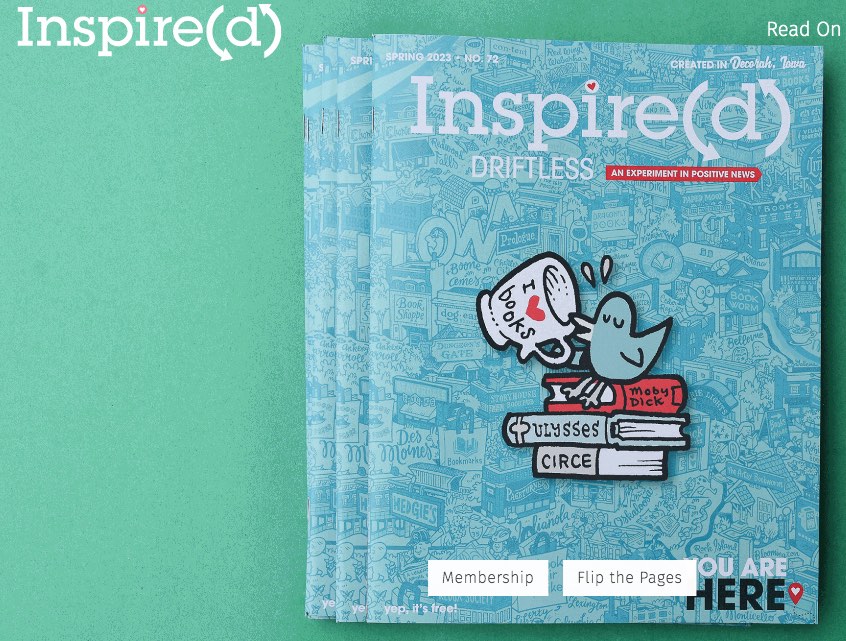by Andy Johnson, Executive Director
Editor’s note: since this article was written, the Iowa Legislature passed SF 198. The other bills, including the opportunity to study these issues and bring better legislation next session, remain alive.
You load sixteen tons, what do you get?
Another day older and a deeper in debt
Saint Peter don’t you call me ‘cause I can’t go
I owe my soul to the company store.
Tennessee Ernie Ford may have topped the charts in 1955 with Sixteen Tons, but Merle Travis wrote the song based on real life in the coal mines of Muhlenberg County, Kentucky.
According to Travis, the first two lines of the chorus came from his brother, and the last two from his father; both were miners.
Just as Big Coal indebted Kentucky miners to the company store, so now MidAmerican Energy (and parent Berkshire Hathaway) is indebting Iowa’s hard-working ratepayers to the company store of investor profits.
There is great moral hazard in the state granting monopoly control of the power sector to a single company, with over 680,000 captive Iowa customers. There is even greater moral hazard in that company pressuring politicians into removing the last remaining pillars of public oversight, accountability, and transparency of that state granted monopoly behemoth.
Legislators: MidAmerican rate increases are coming one way or another. Do you really want to write a blank check of “deregulation” to a power monopoly with no competition and over 680,000 captive Iowa customers? Maybe it’s time to stop and think, to do the work first, and revisit these issues in the future.
The Illusion of a Squeaky Clean Utility
MidAmerican Energy has been very effective at promoting the illusion that it’s serving Iowa ratepayers by keeping rates down and advancing rapidly towards 100% renewables.
In reality, MidAmerican’s business decisions have been and continue to be designed to maximize benefits to out-of-state investors, while running up ratepayer debt at the company store for coming generations of hard-working Iowans.
Yes, they’ve built a great deal of wind energy and that’s mostly good for Iowa. But they’ve also been rigging the system to maximize tax benefits and perpetually guaranteed profits to investors, even as built-in rate pressures mount and ratepayers may be in for sticker shock in coming years.
MidAmerican also appears hell-bent on running a large fleet of uneconomical coal plants for decades into the future, at outrageously high cost and health/environmental impact to ratepayers but at quite a nice profit to Berkshire investors, who also own the coal trains.
But MidAmerican’s chickens are coming home to roost, and the company is desperately seeking a bailout from legislators to protect their wealth extraction business model from public accountability.
Dismantling Public Accountability
Two important pieces of regulatory oversight help keep behemoth monopolies like MidAmerican honest. The company is working hard to kill both, this session, at the People’s House.
SF 198 would take all teeth out of a mandatory bi-annual regulatory exercise called an emissions plan and budget (EPB) docket. These dockets look at emissions of fossil fuel plants, but also, importantly, at the economics of those plants and their benefits and costs to ratepayers. The bill has passed the House and is awaiting action in the Senate.
MidAmerican has been fighting tooth and nail in a current EPB docket to keep the true economics of their Iowa coal plants secret. They just lost in court, and the company’s own studies show those plants are an increasingly costly burden on Iowa ratepayers (though likely highly profitable to Berkshire investors).
SF 198 would effectively kill the ability of regulators to hold MidAmerican accountable, and indebt Iowa ratepayers to the uneconomical MidAmerican coal plants for at least another generation.
Rate dockets are another critical piece of regulatory oversight that keeps monopoly, investor-owned utilities at least partially accountable.
When an investor-owned utility wants to raise rates on Iowans, they need to come before the Iowa Utilities Board, lift the hood on books and operations, and prove the case for both an overall revenue increase, and a fair distribution of that increase between classes of ratepayers.
MidAmerican hasn’t lifted that hood in a decade, and is due for a rate case in coming years. So the company is promoting SSB 1173 that would – under the guise of “flexible” or “innovative” rate-making – allow it to skirt the existing rate docket process and instead, offer preferential rates to favored customers on a case-by-case basis, with less transparency and oversight.
The Iowa Legislature should know the factual impact to ratepayers before allowing MidAmerican Energy to feed at the public trough of pro-monopoly deregulation.
Or Better Yet, Dismantling the Company Store
Iowa’s regulation of investor-owned utilities isn’t perfect, but it sure as heck isn’t in need of MidAmerican’s proposed fixes.
It could be improved, though. HF 617 asks the Iowa Utilities Board to conduct a participatory study of “code provisions and ratemaking procedures” that best serve customers. Legislators should press pause on SF 198 and SSB 1173, do the work together with the IUB to truly understand the potential impact of the monopoly utility lobbying campaigns, and return to the issues in the future if necessary.
The study bill should be enlarged to include Integrated Resource Planning (IRP). Most states utilize common-sense IRP to ensure that monopoly utility investments are actually in the long-term best interests of ratepayers and the state’s grid, rather than simply maximizing profits to investors.
When combined with a requirement for all-source competitive sourcing and performance incentive mechanisms, a robust IRP process brings not only greater accountability, but also greater competitive pressure to monopoly utilities. It’s no wonder MidAmerican/Berkshire pulled out all stops to block an IRP bill this session (SSB 1059), and to promote their own bills to dismantle existing accountability mechanisms.
Iowa legislators have a clear choice this session. They can ignore moral hazard and allow MidAmerican and Alliant lobbyists and investors to short-circuit public accountability, or they can protect the rights and freedoms of Iowa ratepayers and communities from the growing power of the electric monopoly company store.
*********************************************************************************





